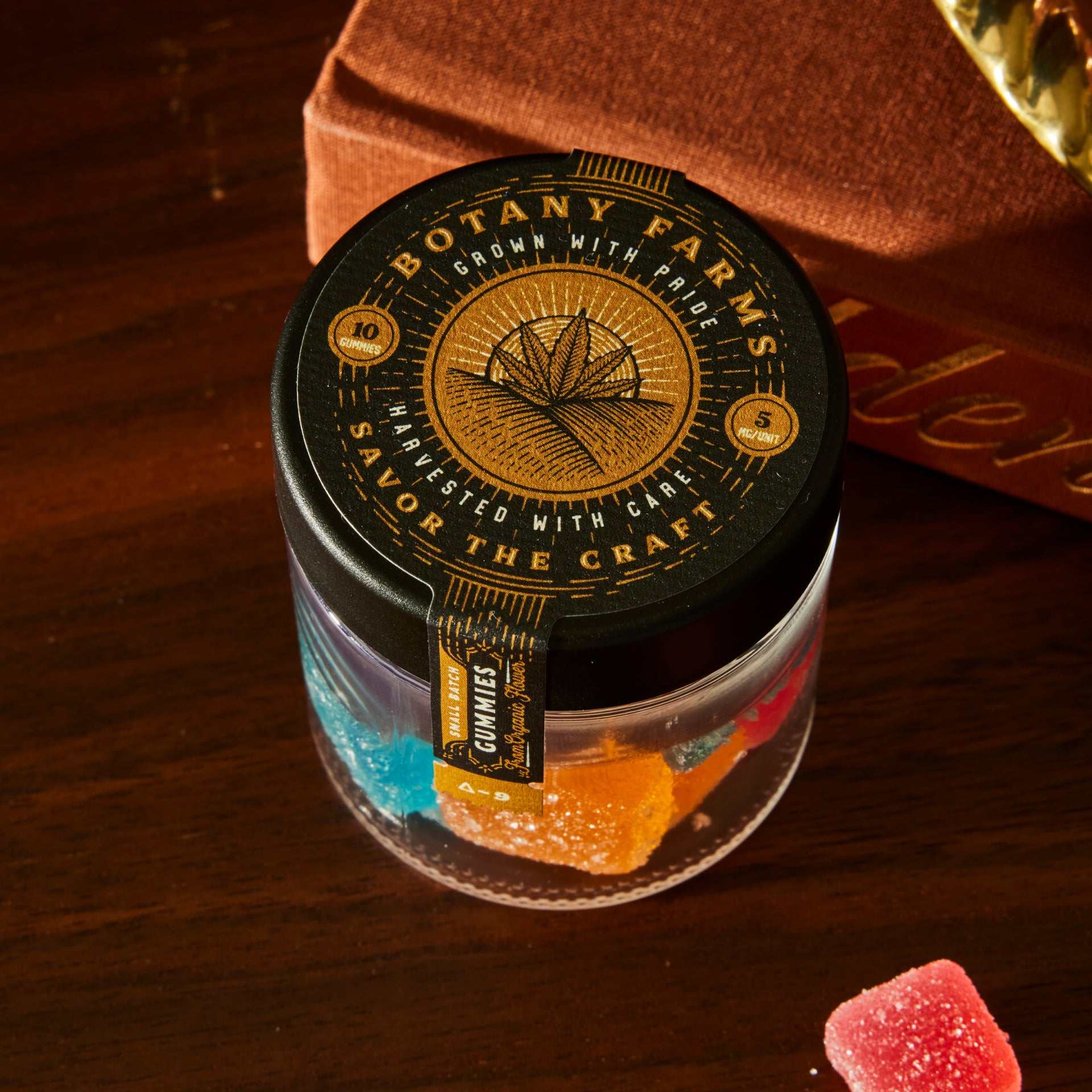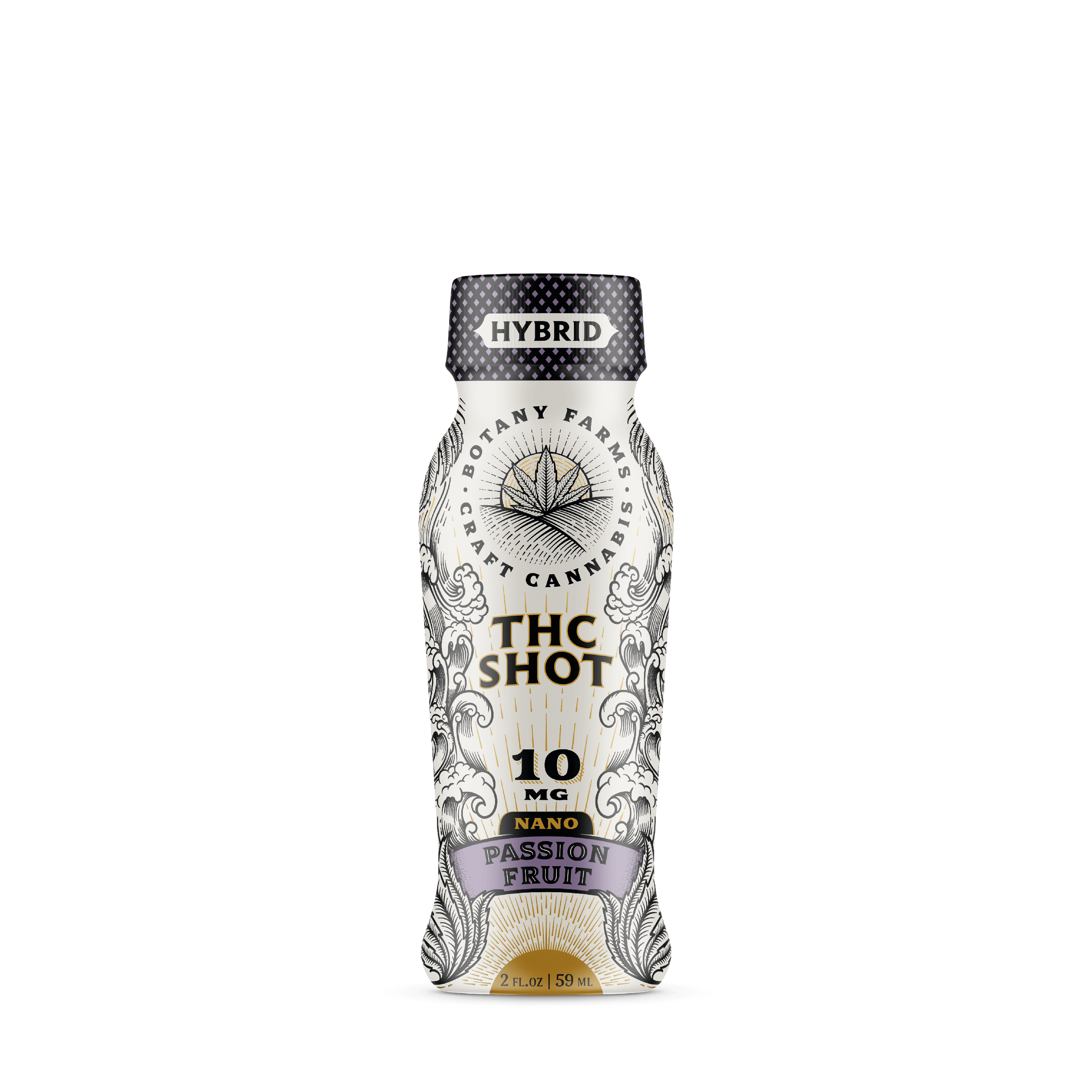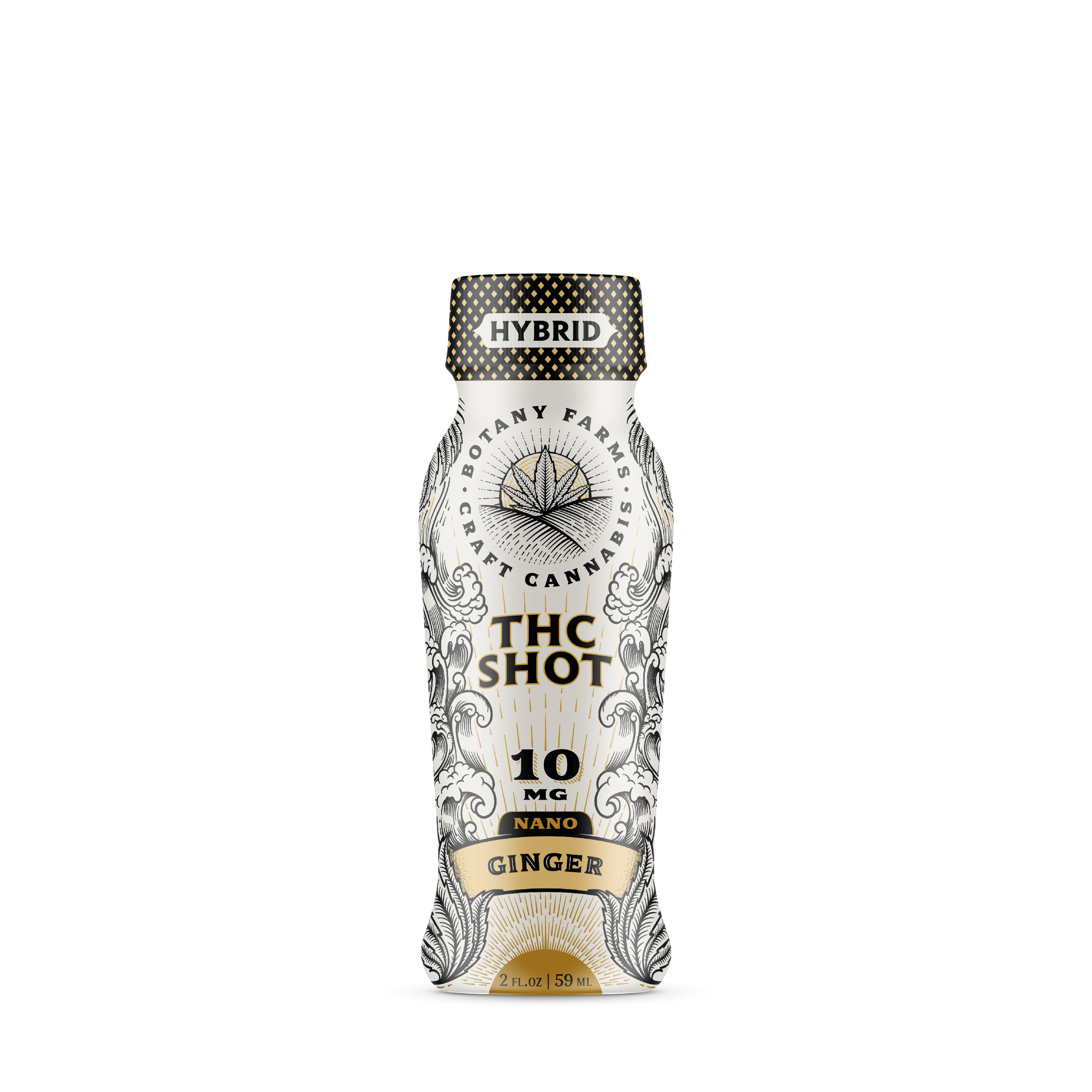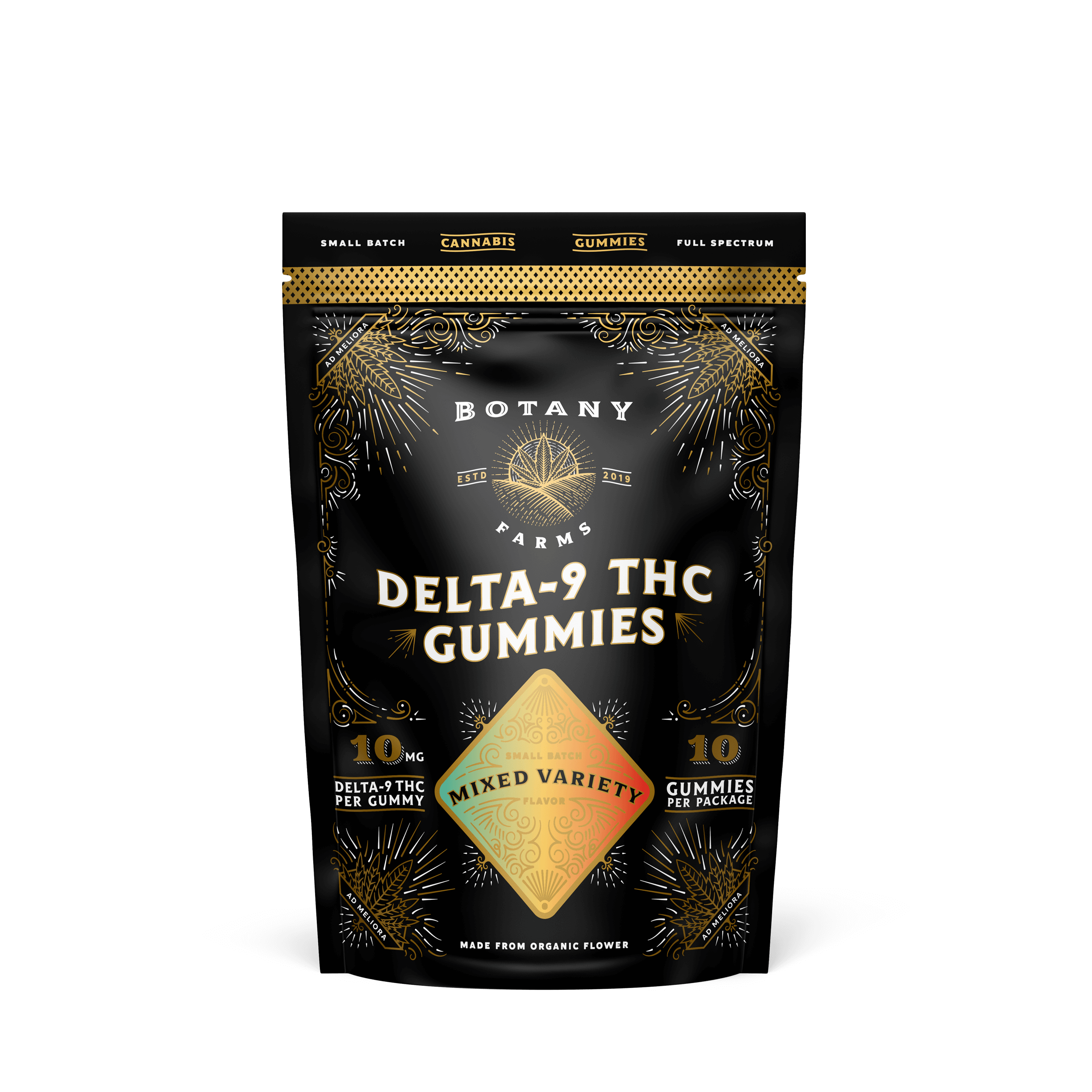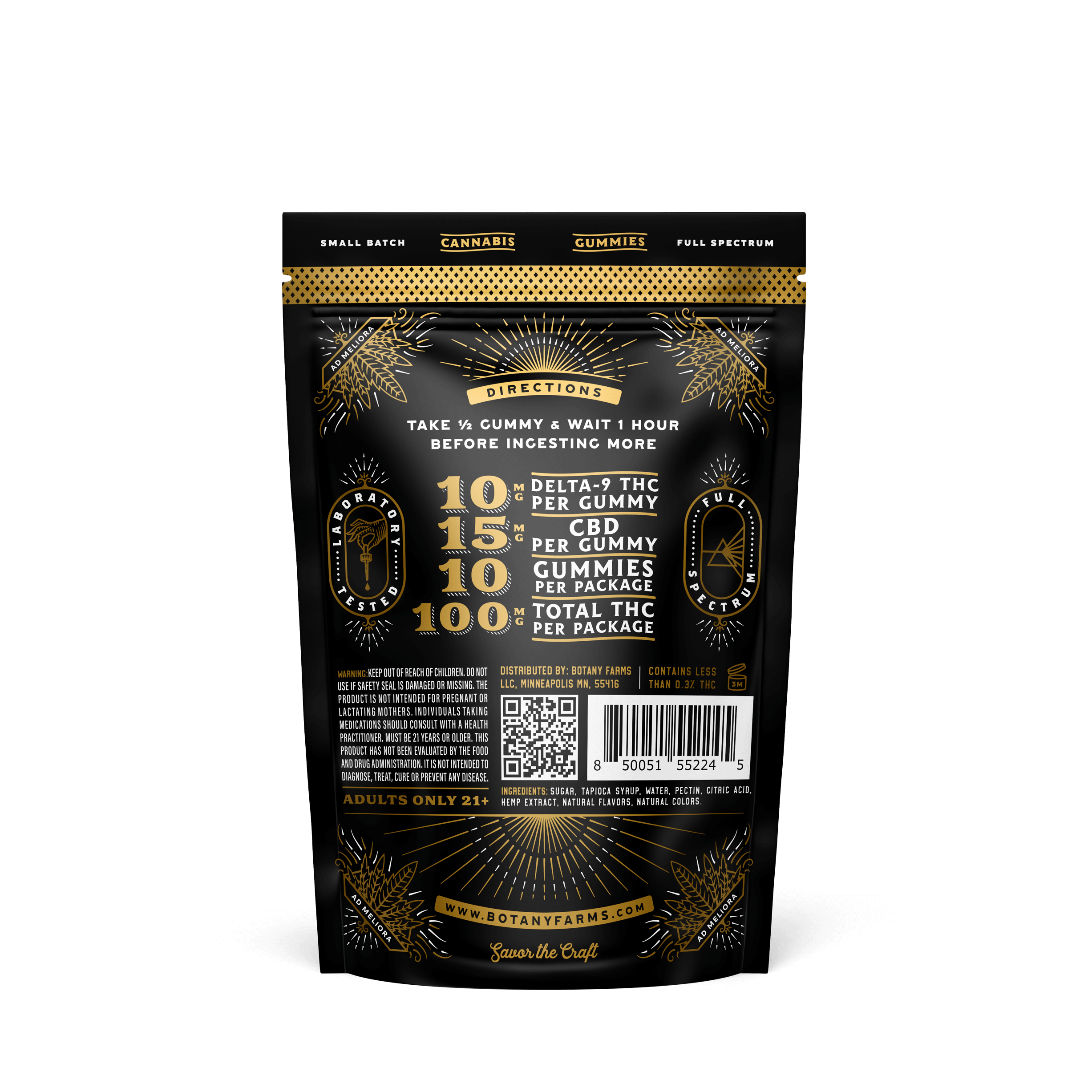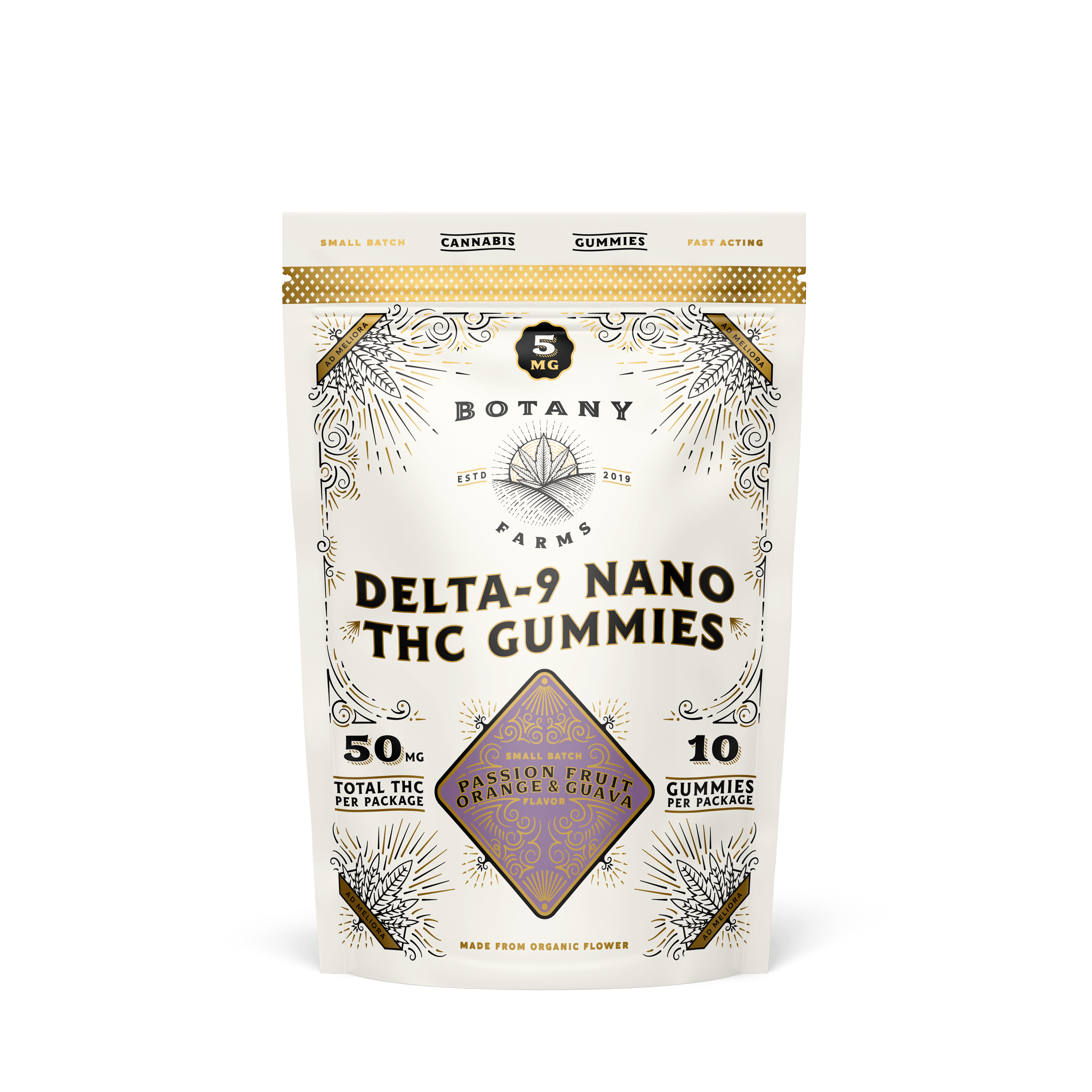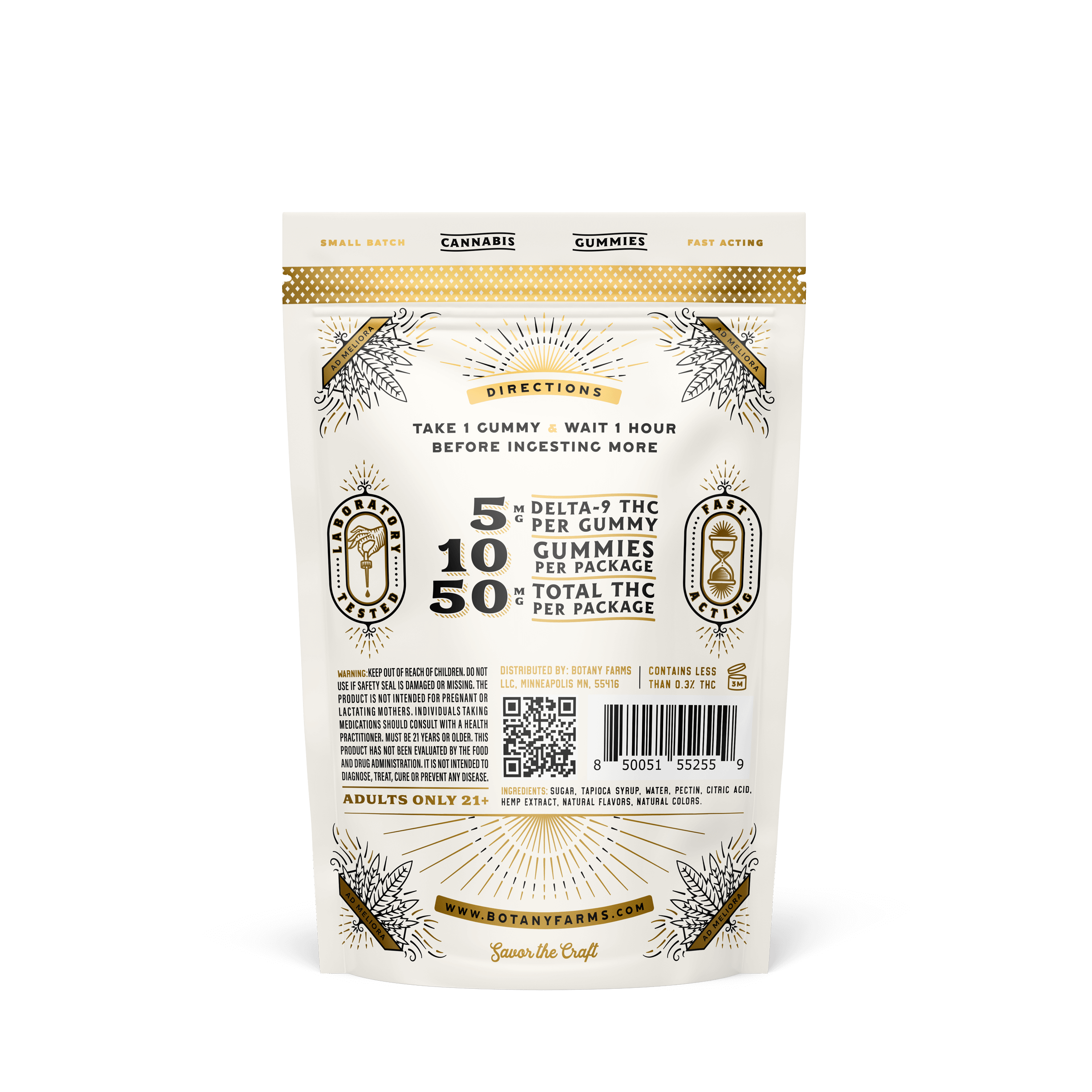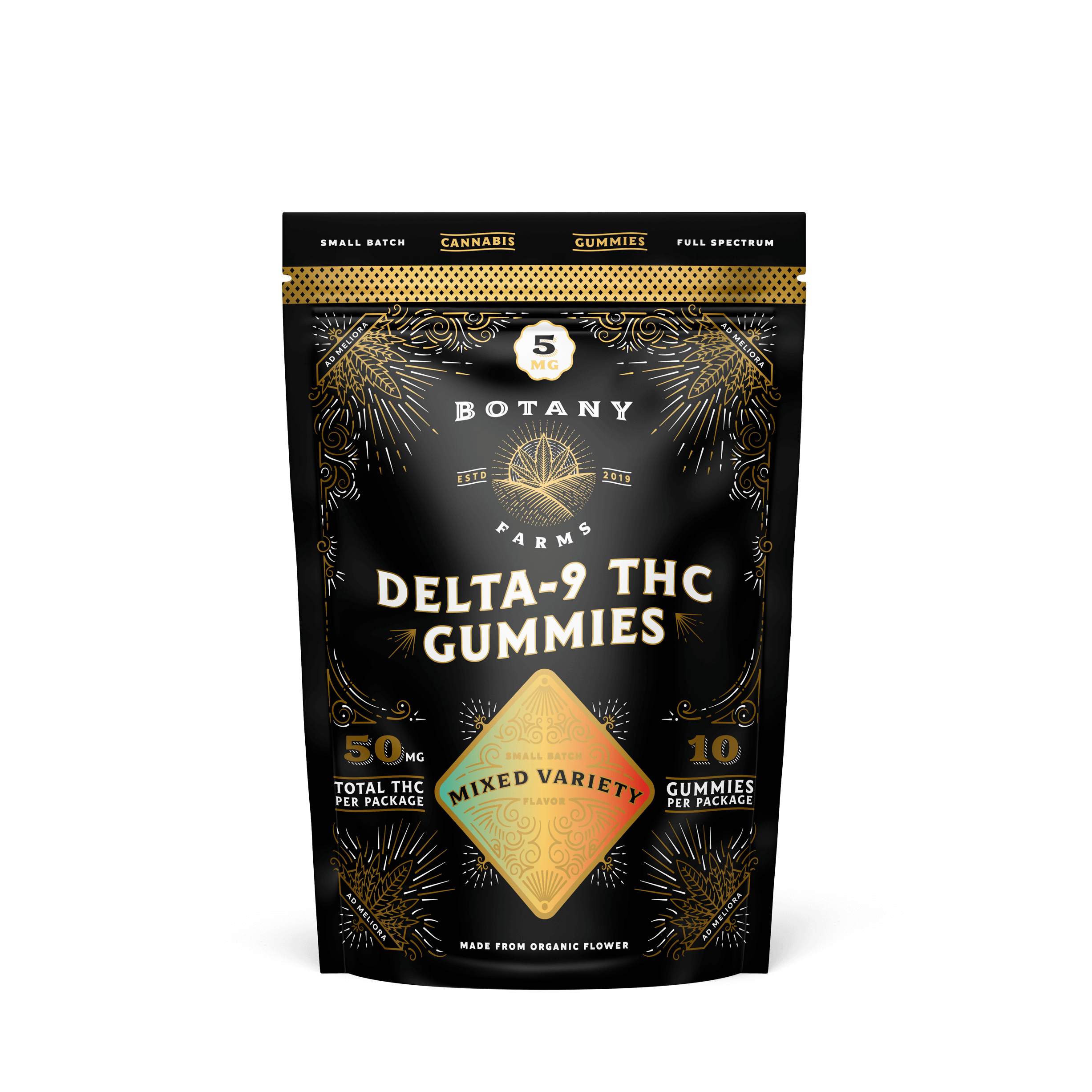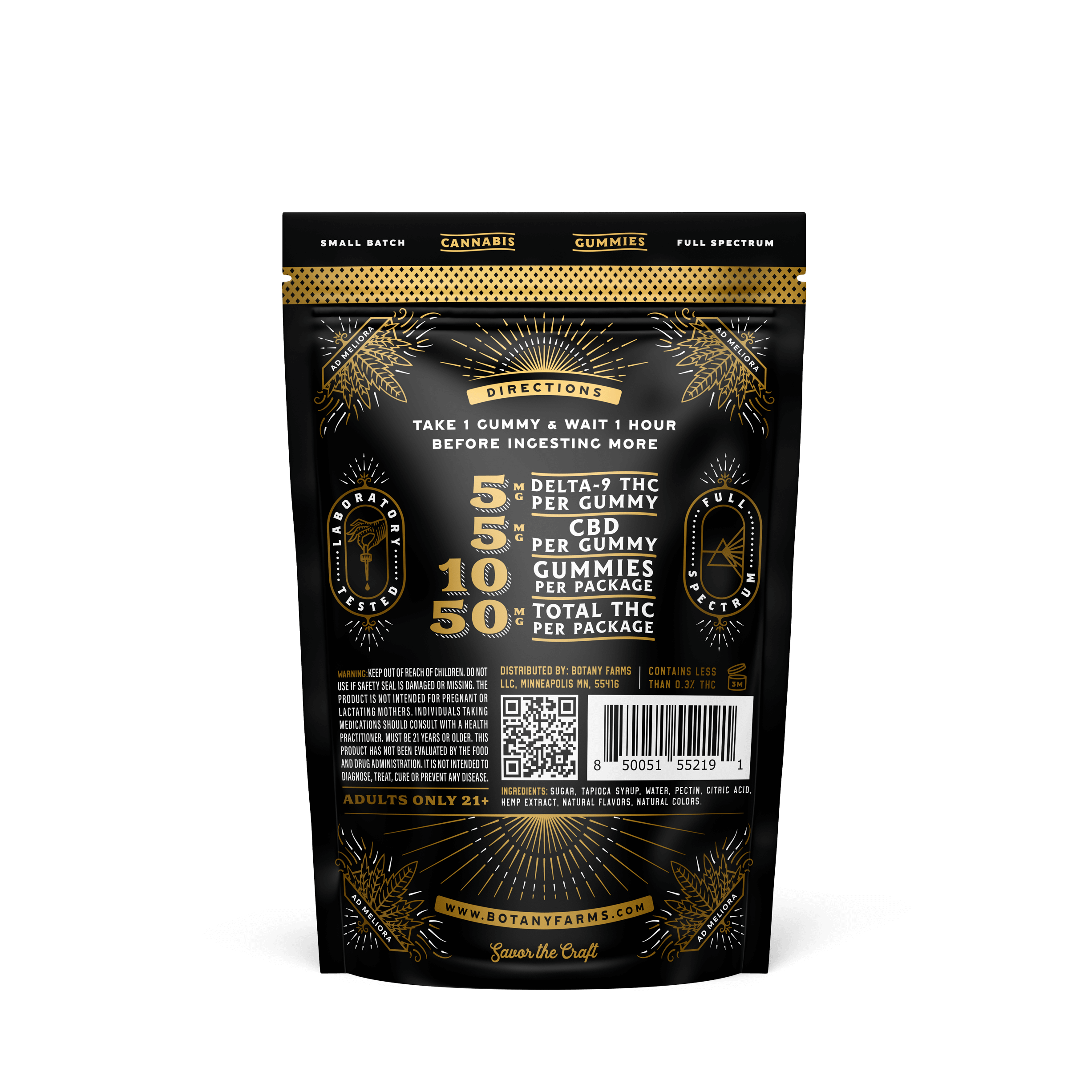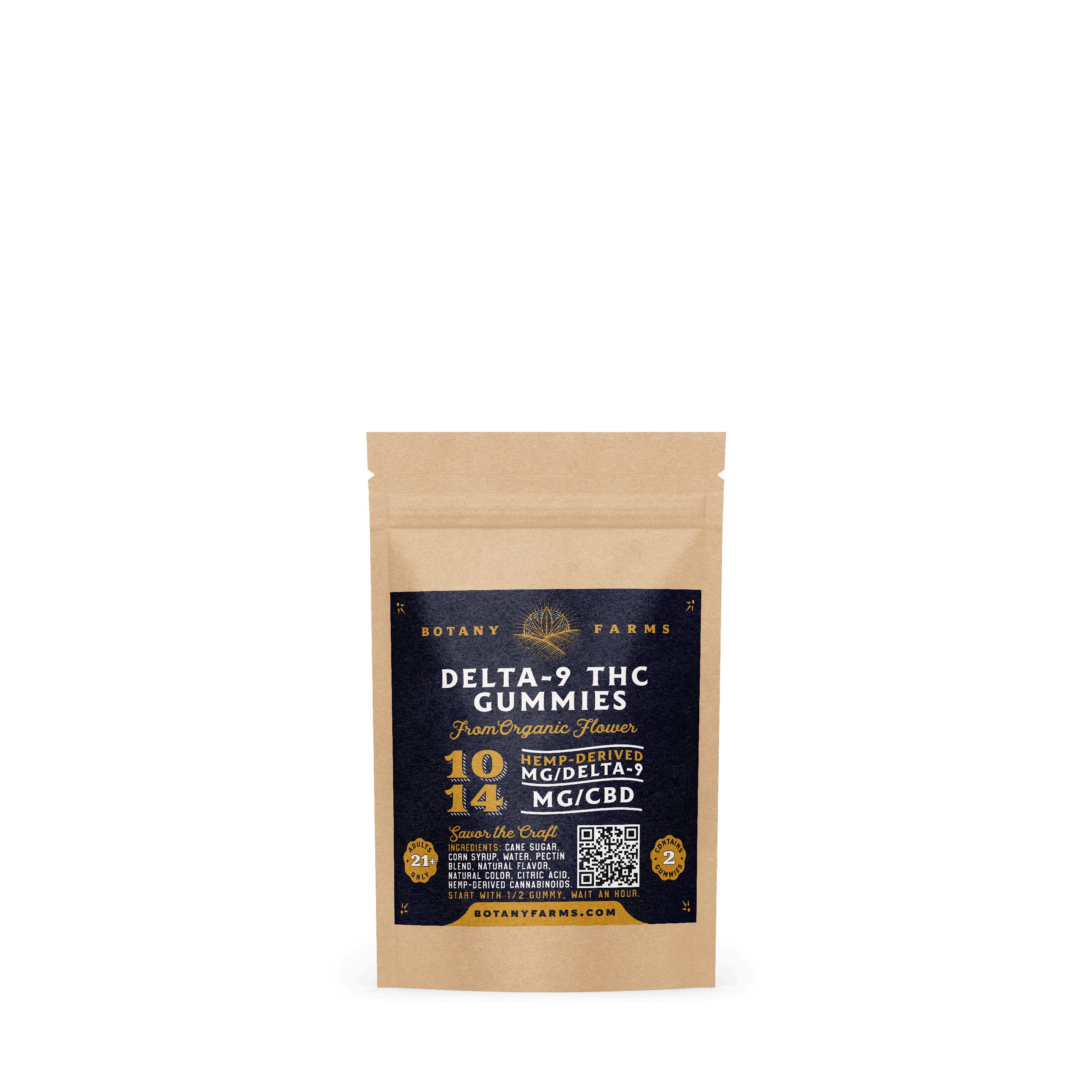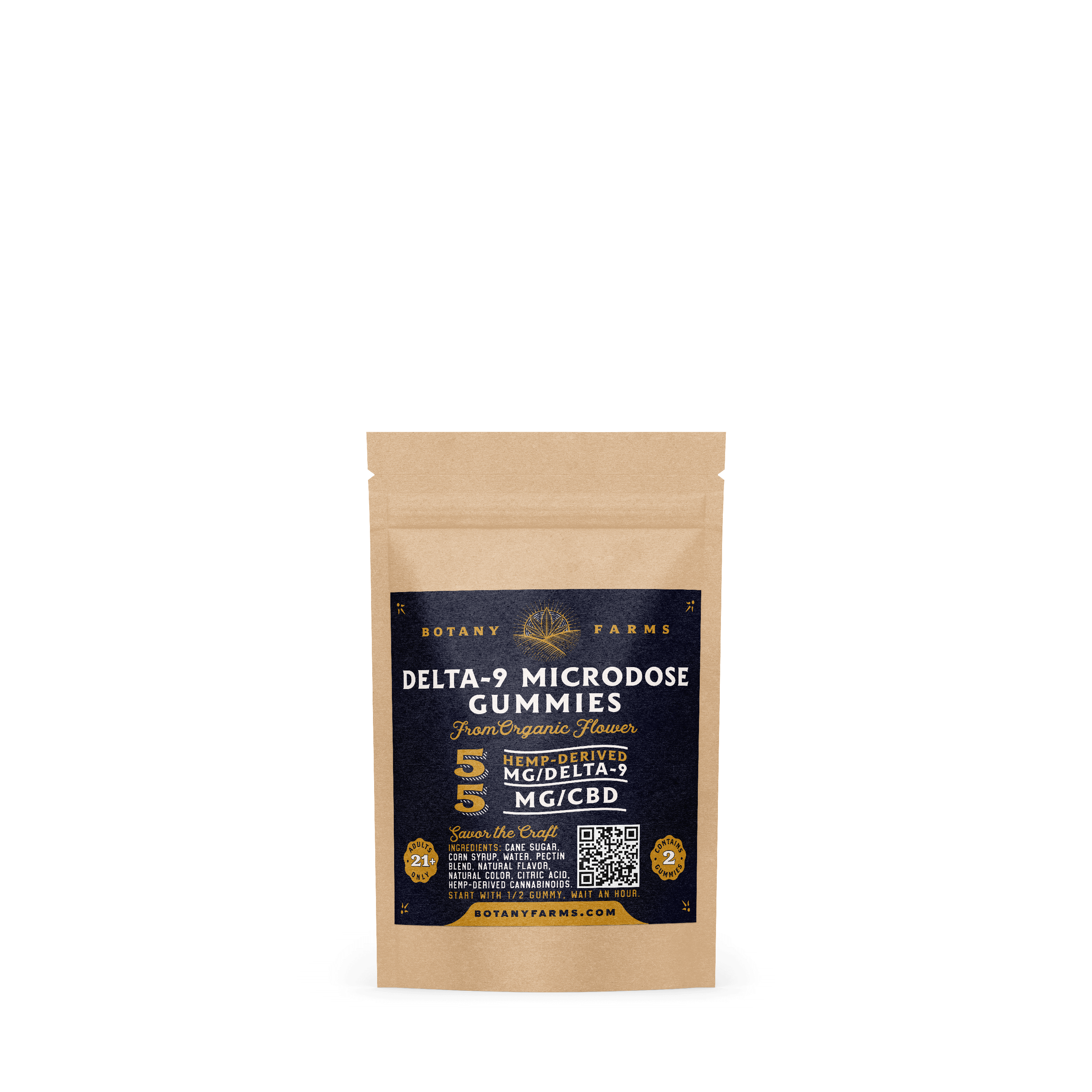Innovation is a prevalent term in the world of cannabis. It is a trait that accompanies the constant search for new and exciting cannabinoids that can offer different experiences and possible therapeutic benefits.
The controversial Delta-9 THC is undoubtedly the most famous and best-studied cannabinoid. It is known for its psychoactive effects and potential medical applications. Nonetheless, there is a newcomer to the scene: tetrahydrocannabiphorol or THCP, a fascinating isomer for scientists and cannabis enthusiasts alike due to its impressive qualities.
But how does this novel compound compare to the world-famous Delta-9? Do they have something in common? In this post, we explore the characteristics of these cannabinoids, focusing on their inherent properties. So, if you are looking to better understand the potency, effects, and safety profiles of THCP vs Delta-9, read on, and you will find everything you need to know about these marvelous compounds!
Key Takeaways
- When Delta-9 THC interacts with the brain's CB1 receptors, it triggers a cascade of chemical reactions that cause alterations in perception, mood changes, and increased appetite.
- THCP is structurally similar to Delta-9 THC but is believed to be markedly more potent.
- Early studies suggest that THCP may play a role in modulating the endocannabinoid system and could offer different therapeutic benefits.
- Although THCP and Delta-9 THC are undoubtedly unique, making a comparison between both compounds in terms of potency, psychoactive effects, and possible therapeutic benefits can help us have a better understanding of how they differ from each other.
Understanding Cannabinoids: The Basics
Before delving into the details of Delta-9 THC and THCP, it's important to review some cannabinoid basics. These compounds are natural chemicals that occur naturally in cannabis plants. They interact with the human body's endocannabinoid system (ECS), which plays a crucial role in regulating various physiological processes, including pain perception and response, mood, appetite, and immune response.
The ECS consists of endocannabinoid receptors, called CB1 and CB2, produced by our body and enzymes that break down endocannabinoids. When we consume cannabinoids, they interact with receptors and mimic the effects of our endocannabinoids.
While there are more than 100 known cannabinoids in the cannabis plant, two of the best-known and most widely researched are Delta-9 THC and CBD or cannabidiol. Delta-9 THC is famous for its psychoactive effects, while CBD is non-psychoactive and has attracted attention for its potential therapeutic properties, such as pain relief and anxiety reduction.
Delta 9 THC: An Overview
Delta-9 THC is the primary psychoactive compound in cannabis and the cannabinoid responsible for the euphoria and "high" associated with marijuana use. When Delta-9 THC interacts with the brain's CB1 receptors, it triggers a cascade of chemical reactions that cause alterations in perception, mood changes, and increased appetite. That's why it is often used recreationally but also has a long history of medical use for conditions like chronic pain, nausea, and muscle spasms.
There is often some confusion among newcomers about whether Delta-9 THC will get them high. The answer is a resounding yes: Delta 9's interaction with our ECS can induce a high when consumed, especially in large quantities. The intensity of these effects varies greatly from person to person and is influenced by factors such as dosage, individual tolerance, and the presence of other cannabinoids.
The legal status of Delta-9 THC varies from place to place. In some regions, its recreational and medicinal use is completely legal, while in others, it is strictly regulated or prohibited. There is a wide variety of consumption methods for Delta 9, such as smokable products, vaping products, and concentrates, among others.
However, one of the most popular ways to consume Delta-9 THC is through edibles, such as Delta-9 gummies, which provide a convenient, precise, and discreet dosing method. Another new trend for consuming Delta-9 is the Delta-9 microdose gummies and Delta-9 nano microdose gummies, which offer even greater dosage control and greater legal security due to their reduced Delta-9 content.
THCP: A Closer Look
THCP is a relatively new player on the cannabis scene. It was first identified in 2019 by Italian researchers. THCP is structurally similar to Delta-9 THC but is believed to be markedly more potent. Initial research suggests that THCP may have up to 33 times more affinity for ECS receptors, generating effects 15 to 20 times more potent than Delta-9 THC. However, this finding is still the subject of ongoing research and debate.
The potential effects of THCP are a topic of great interest among researchers and cannabis enthusiasts as well. Early studies suggest that THCP may play a role in modulating the endocannabinoid system and could offer different therapeutic benefits. Nevertheless, due to its relative newness, the precise effects of THCP are still shrouded by a certain aura of mystery.
Legally, the status of THCP is also evolving. Like many other cannabinoids, its legality depends on local regulations and can be classified as a controlled substance in some areas, even though the majority of commercially available THCP comes from hemp. As for consumption methods, like Delta 9-THC, THCP can be found in a variety of products, including vape cartridges, tinctures, and edibles.
THCP vs. Delta-9 THC
Although THCP and Delta-9 THC are undoubtedly unique, making a comparison between both compounds in terms of potency, psychoactive effects, and possible therapeutic benefits can help us have a better understanding of how they differ from each other. The most important aspects that differentiate THCP from Delta-9 are the following:
- Potency: The key difference between THCP and Delta-9 THC is their potency. THCP's potential to be significantly more potent than Delta 9 has caught the attention of the cannabis community. Early research suggests that THCP may have a binding affinity for CB1 receptors that is many times stronger than that of Delta 9 THC. This could potentially translate into a more intense psychoactive experience when using THCP, but we need more research to confirm these initial findings.
- Psychoactive effects: Both THCP and Delta-9 THC are psychoactive compounds, meaning they can alter mental state and perception. Delta-9 THC is known for producing a euphoric “high” and a feeling of relaxation. Users often report altered sensory perception, increased creativity, and sometimes mild paranoia or anxiety, especially at high doses.
Due to its structural similarities to Delta-9 THC and its greater potency, THCP can produce similar effects but with greater intensity. This increased potency could result in a more pronounced “high” or more substantial therapeutic effects. Nevertheless, it is crucial to note that individual responses to cannabinoids can vary widely, and not everyone will experience the same outcomes.
- Therapeutic benefits: Both THCP and Delta-9 THC have shown potential therapeutic benefits, primarily due to their interactions with the endocannabinoid system. Delta-9 THC is used medically to relieve symptoms of various conditions, including chronic pain, muscle spasms, nausea, and even symptoms of anxiety or depression in some cases.
The therapeutic potential of THCP has not been extensively studied because it is a novel cannabinoid. However, some speculate that its higher potency and unique interactions with the ECS could open new avenues for treating specific conditions. Future research will be instrumental in determining the precise potential therapeutic applications of THCP.
- Safety profiles and side effects: When comparing THCP and Delta-9 THC in terms of safety, it is essential to consider the possible side effects. Consuming Delta-9 THC, especially in high doses, can cause side effects such as dry mouth, red eyes, memory problems, and, in some cases, anxiety or paranoia. Long-term use of Delta-9 THC, particularly at high levels, can lead to dependence and cognitive impairment in some people.
Data on the safety profile and possible side effects of THCP are still limited due to its novelty. Given its higher potency, users may experience more intense versions of the side effects associated with Delta 9 THC. Furthermore, the potential for dependency and long-term effects are still unknown, so we require more research to determine these aspects.
Due to the similarity in names, chemical structures, and effects, THCA, or tetrahydrocannabinolic acid, is another cannabinoid worth mentioning in this context. THCA is the non-psychoactive precursor to Delta-9 THC, found in raw, unheated cannabis plants. When exposed to heat, THCA is converted to Delta-9 THC through a process called decarboxylation, unlocking its psychoactive potential. THCA is gaining popularity for its potential anti-inflammatory and neuroprotective properties, as well as the non-psychoactive nature of its raw form.
In comparison, THCA is non-psychoactive when not decarboxylated, while Delta-9 THC and THCP are psychoactive compounds. This makes THCA a great choice for users seeking the potential therapeutic benefits of cannabis without the associated “high.” Nevertheless, decarboxylated or “activated” THCA has a psychoactive potential similar to that of Delta 9 but potentially milder.
THCP, on the other hand, shares the psychoactive properties of Delta-9 THC, potentially with even greater potency. This means that THCP is more likely to induce a significant “high” compared to THCA. Depending on the desired effects, individuals can choose one or the other based on their preference for psychoactivity.
Final Thoughts
Undoubtedly, Delta-9 THC has long been in the spotlight as the primary psychoactive compound in cannabis. However, the emergence of THCP, with its potentially beneficial effects, has opened a new window of possibilities that has cannabis enthusiasts and researchers fascinated.
The choice between Delta-9 THC and THCP ultimately comes down to the preferences and needs of each user. But regardless of the choice, it's crucial to approach these substances with caution, especially if you're just getting familiar with cannabinoids or experimenting with novel compounds like THCP. It is also vital to stay up to date on the legal status of cannabinoids in your area and prioritize responsible use to minimize potential risks.
Additionally, ongoing research into the effects, safety profile, and potential therapeutic applications of THCP and other cannabinoids will continue to shape the cannabis landscape.
In conclusion, the world of cannabinoids is dynamic and exciting, and whether you choose Delta 9 THC, THCP, or another cannabinoid, always remember the importance of responsible and well-informed experimentation. Your personal experiences with these compounds may vary, and it is essential to make decisions that align with your well-being and preferences.
Delta 9 vs. THCP: Frequently Asked Questions
What makes THCP different from Delta-9 THC in terms of chemical structure and effects?
The most significant difference between THCP and Delta-9 THC in terms of their chemical structure is that THCP has an elongated alkyl side chain, which leads to differences in binding affinity to cannabinoid receptors. This structural distinction may contribute to potentially different physiological effects, such as increased potency and different interactions with the ECS.
How does the potency of THCP compare with that of Delta-9 THC?
Experts believe THCP is more potent than Delta-9 THC, with early research suggesting it may have up to 33 times greater affinity for endocannabinoid receptors, translating into up to 20 times greater potency. This increase in potency could result in a more intense psychoactive impact, but more research is required to confirm the exact potency and effects of THCP.
Are there any legal differences between THCP and Delta-9 THC?
The legal status of THCP varies by jurisdiction, as does Delta-9 THC. Some regions may regulate THCP as a controlled substance, while others allow its use, often subject to specific regulations. Legal differences can affect the purchase and consumption of THCP products, so it is advisable to stay up to date with local laws.
Can THCP products be used for the same therapeutic purposes as Delta-9 THC?
THCP and Delta-9 THC may have similar therapeutic purposes, primarily related to their interactions with the ECS. However, the specific applications of each cannabinoid are still being researched. Medicinal users commonly take Delta-9 THC for pain management, while the potential medical uses of THCP are still under investigation.
What should consumers know about the safety and side effects of THCP versus Delta-9 THC?
Users should be aware of the possible side effects and safety precautions of both THCP and Delta-9 THC. Known side effects may include dry mouth, red eyes, altered perception, and, in some cases, anxiety or paranoia. Responsible use and moderation are crucial to minimize the risks associated with both cannabinoids.
Is THCP available in the same types of products as Delta-9 THC (e.g., edibles, oils, tinctures)?
THCP is available in various forms of products similar to Delta-9 THC, including edibles, oils, tinctures, and vape cartridges. The variety of products for THCP could continue to expand as its popularity and research grow.
How can consumers verify the authenticity and quality of THCP products?
To verify the authenticity and quality of THCP products, consumers should look for products that have undergone rigorous testing by accredited laboratories. Additionally, checking for proper labeling and purchasing from reputable, trusted sources can help ensure product integrity and safety.






